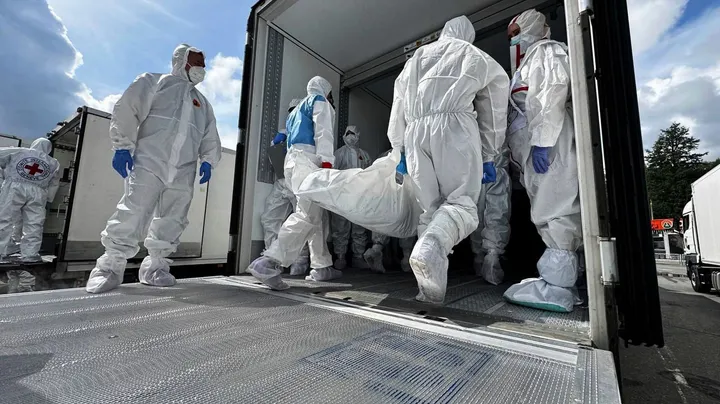French Prime Minister Jean Castex warned that the country is entering “a kind of third wave” of infections on Tuesday, March 16.
France is struggling with a growing health crisis as infection numbers continue to rise, the Oxford Astrazeneca vaccine was suspended in at least five European countries due to side effects such as lethal blood clots. This comes as France announced the discovery of a new variant in western France that cannot be detected using the gold-standard PCR swab kit.
Polymerase Chain Reaction (PCR) tests check for the genetic material from the virus. The rapid antigen test, as the name suggests, checks for antigens instead of antibodies. Antigens are molecules responsible for triggering an immune system response, while antibodies are used to fight bacteria or viral infections.
The French region of Brittany saw at least 8 patients among 79 suspected infections go on to develop standard covid-19 symptoms, only to test negative for the virus. The status of their infection was only confirmed after a blood test or deep respiratory swab.
This poses serious risks to France’s neighbours. On February 28, Germany announced travel limitations on French commuters in France’s northwest region, due to the high risks of viral mutations and new variants emerging in the region.
Travellers were required to provide a negative PCR test before entering Germany, although it remains to be seen whether Germany will implement full travel restrictions in light of the new variant or if other European nations will follow suit.
France’s ministry of health reports that initial studies show the French variant did not mutate to be more contagious or severe. For public health officials, it's a race between herd immunity and a ticking clock where every covid-19 mutation could possibly see it mutate into a more virulent or dangerous virus. The ministry is also overseeing studies to determine whether vaccines are effective on the new variant, and whether antibodies from a previous coronavirus infection can stand against it.
Viruses mutate naturally, and natural selection usually takes its course. While a virus may not be well-suited to cold climates, a single random mutation could ensure that one cold-resistant or drug-resistant virus survives, spreads and becomes the dominant strain.
While there are multiple variants, three are particularly concerning to public health officials, specifically the British, South African and Brazilian variants.
The South African variant reportedly makes reinfection 2 per cent more likely, while the Brazilian variant saw reinfection of up to 75 per cent in one city. The UK variant on other hand is reportedly more easily transmitted, but not more severe.
Researchers at the Pasteur Institute are working hard to determine which genetic mutations make the virus difficult to detect.
In response, France’s government is trying its best not to institute fresh lockdowns, even as new cases top 20,000 a day. At the end of 2020, France reported a deep recession as output fell by 8.3 per cent, while its economy shrunk by 1.3 per cent in the last three months of 2020 alone.
Meanwhile, European health ministers are still discussing a final decision regarding the Oxford AstraZeneca vaccine. On Tuesday, March 17 the European Medicine Agency held a press conference, stating that they were “firmly convinced” the benefits outweigh the risks of using the vaccine.
The announcement has done little to assuage scepticism over the vaccine, amid a slow vaccine campaign to begin with.
AstraZeneca was supposed to provide at least one-fifth of all vaccine doses.
“We cannot afford a single doubt over the vaccines’ efficiency,” said French Minister of Industry Agnes Pannier-Runacher on Tuesday. With news of a variant that can evade quick screening, it remains to be seen how the announcement will be received.
Vaccines at the forefront of political campaigns in Europe right now. Shortages in Germany are placing significant pressure on German Chancellor Angela Merkel, who witnessed her party’s worst performance in history throughout two state elections last weekend. The German Chancellor has already faced criticism for the slow roll-out of vaccinations in Germany.
French President Emmanuel Macron is closely tied in polls with right-wing rival Marine Le Pen for the 2022 presidential elections, with performance on vaccines and the economy likely to determine the nation’s next president.
























